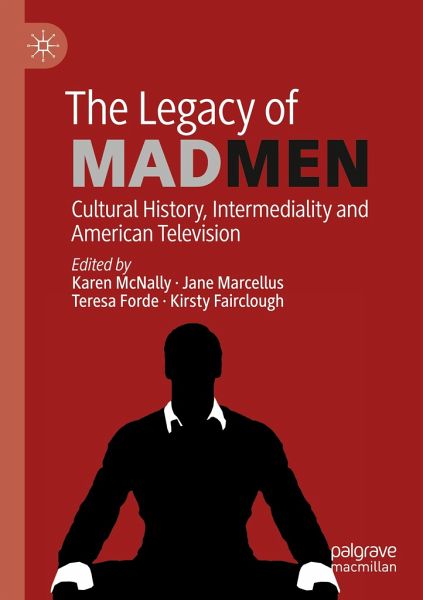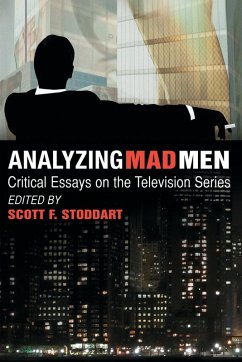
The Legacy of Mad Men
Cultural History, Intermediality and American Television
Herausgegeben: McNally, Karen; Marcellus, Jane; Forde, Teresa; Fairclough, Kirsty
Versandkostenfrei!
Versandfertig in 6-10 Tagen
83,99 €
inkl. MwSt.

PAYBACK Punkte
42 °P sammeln!
For seven seasons, viewers worldwide watched as ad man Don Draper moved from adultery to self-discovery, secretary Peggy Olson became a take-no-prisoners businesswoman, object-of-the-gaze Joan Holloway developed a feminist consciousness, executive Roger Sterling tripped on LSD, and smarmy Pete Campbell became a surprisingly nice guy. Mad Men defined a pivotal moment for television, earning an enduring place in the medium's history.This edited collection examines the enduringly popular television series as Mad Men still captivates audiences and scholars in its nuanced depiction of a complex dec...
For seven seasons, viewers worldwide watched as ad man Don Draper moved from adultery to self-discovery, secretary Peggy Olson became a take-no-prisoners businesswoman, object-of-the-gaze Joan Holloway developed a feminist consciousness, executive Roger Sterling tripped on LSD, and smarmy Pete Campbell became a surprisingly nice guy. Mad Men defined a pivotal moment for television, earning an enduring place in the medium's history.
This edited collection examines the enduringly popular television series as Mad Men still captivates audiences and scholars in its nuanced depiction of a complex decade. This is the first book to offer an analysis of Mad Men in its entirety, exploring the cyclical and episodic structure of the long form series and investigating issues of representation, power and social change. The collection establishes the show's legacy in televisual terms, and brings it up to date through an examination of itscultural importance in the Trump era. Aimed at scholars and interested general readers, the book illustrates the ways in which Mad Men has become a cultural marker for reflecting upon contemporary television and politics.
This edited collection examines the enduringly popular television series as Mad Men still captivates audiences and scholars in its nuanced depiction of a complex decade. This is the first book to offer an analysis of Mad Men in its entirety, exploring the cyclical and episodic structure of the long form series and investigating issues of representation, power and social change. The collection establishes the show's legacy in televisual terms, and brings it up to date through an examination of itscultural importance in the Trump era. Aimed at scholars and interested general readers, the book illustrates the ways in which Mad Men has become a cultural marker for reflecting upon contemporary television and politics.














